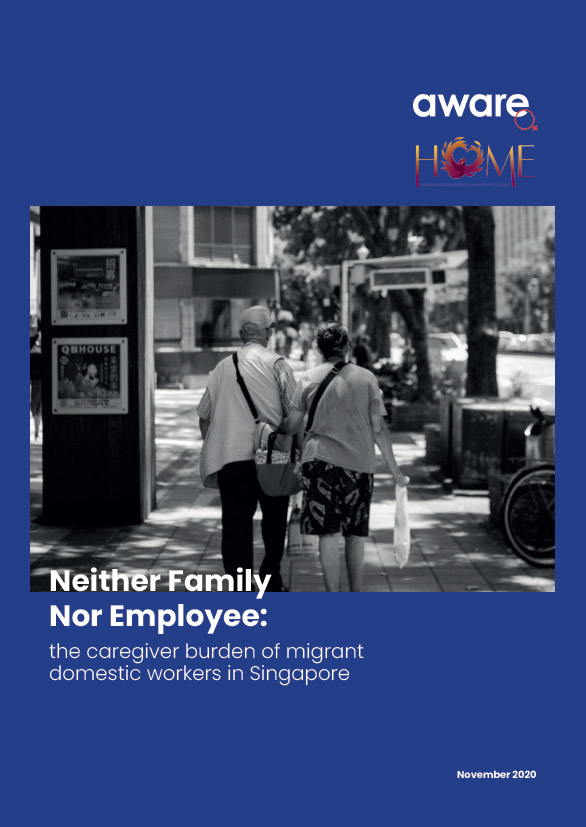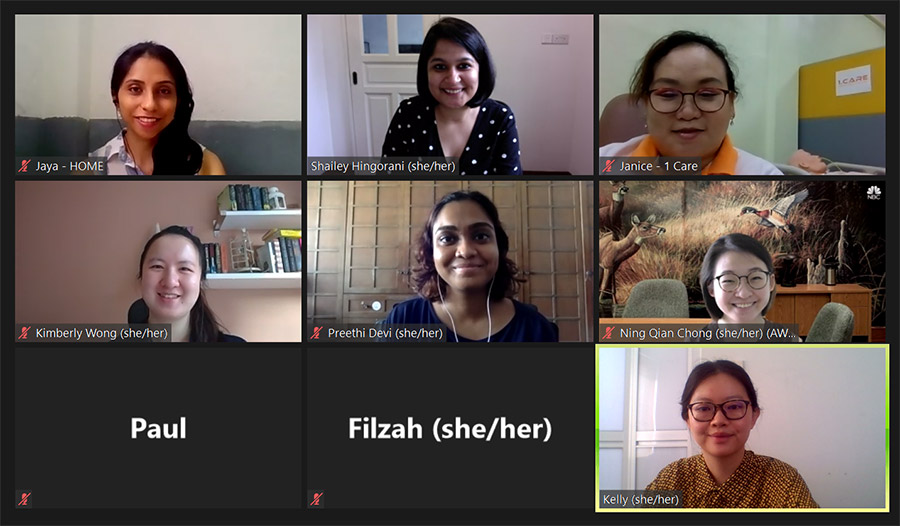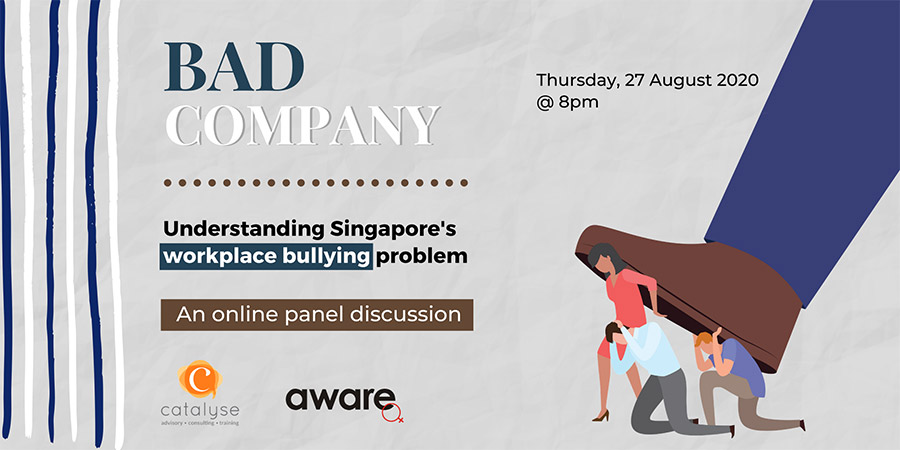Advocacy
Advocacy: Women at Work
Migrant domestic workers providing eldercare
In November 2020, we launched our latest research report, “Neither Family Nor Employee: the caregiver burden of migrant domestic workers in Singapore”. This report built upon the findings of AWARE’s 2019 research report, “Make Care Count”, which explored the impact of providing eldercare on the retirement adequacy of female family caregivers. In the 2020 report, we focused on the challenges faced by migrant domestic workers (MDWs) providing eldercare.
For this research, we partnered with the Humanitarian Organisation for Migration Economics (HOME) and drew on their years of experience providing support services to MDWs. We interviewed 25 MDWs in their native languages, as well as four employment agencies (EAs), seven employers of MDWs and five private eldercare training providers. We also consulted with academics who have studied the distribution of caregiving responsibilities in Singapore, and all other major MDW support organisations.

Our research found that three factors contributed to MDWs’ caregiver burden: inaccurate matching to eldercare jobs, overwork and a lack of caregiving-specific informational and emotional support. We proposed recommendations to provide better legislative protection, job matching and specialised support for MDWs, bringing our ideas to policymakers from the Ministry of Health, Ministry of Manpower and the Agency for Integrated Care, and also the Indonesian Embassy of Singapore.
“Neither Family Nor Employee” was launched with a virtual press conference featuring three panellists: AWARE’s Shailey Hingorani, HOME Case Manager Jaya Anil Kumar and Janice Tan, Director and Senior Registered Nurse Trainer from 1.CARE Employment Agency.

As the first local study on this subject that brought together multiple stakeholder perspectives, the report’s findings were widely covered by all major news outlets. This generated much public and media attention, with at least four Straits Times Forum letters published in response to our findings, and robust engagement on multiple social media platforms.
Prior to the launch, we also contributed to national conversation about the transfer procedures for MDWs during COVID-19. We published Forum letters in March and May 2020, and received a response from the Ministry of Manpower (MOM).
Workplace harassment, discrimination and bullying

Testimonial
Bad Company: panel on workplace bullying

To further explore the topic of workplace bullying, we held a virtual panel event on 27 August entitled “Bad Company: Understanding Singapore’s workplace bullying problem”. The speakers were Catalyse’s Caroline Callow, WHDA’s Mamta Melwani, Mercer partner Godelieve van Dooren and Asiyah Arif, counsel at Providence Law Asia. A total of 101 attendees tuned into the Zoom session, and during an introductory poll, revealed that 61% perceived that they had been bullied at work.
After the event, 96% of those surveyed said that the event helped them identify behaviours that constitute workplace bullying, while 82% said that they were likely to report instances of workplace bullying in the future, given what they had learned. “Despite being an important topic, there’s not much discussion on [workplace bullying] in public forums,” wrote an attendee. “The questions posed to the panelists helped participants like myself understand the issue more holistically.”
Advocacy on discrimination, including maternity discrimination
The high rates of maternity-related cases seen by WHDA in 2020 led the team to prioritise maternity discrimination as an advocacy issue. To that end, we launched a new FAQ page answering more than a dozen questions about workplace pregnancy discrimination: what it looks like, why it’s wrong and what recourse options are available to victims. We also published a commentary entitled “If mums are amazing, why do some workplaces discriminate against pregnant women?” on Channel NewsAsia in May 2020.
Outside of maternity discrimination, we also spoke up about other forms of discrimination at work. We wrote the following letters:
And we published a popular set of social media infographics on religious wear discrimination, entitled “Debunking common myths about the hijab in the workplace”.